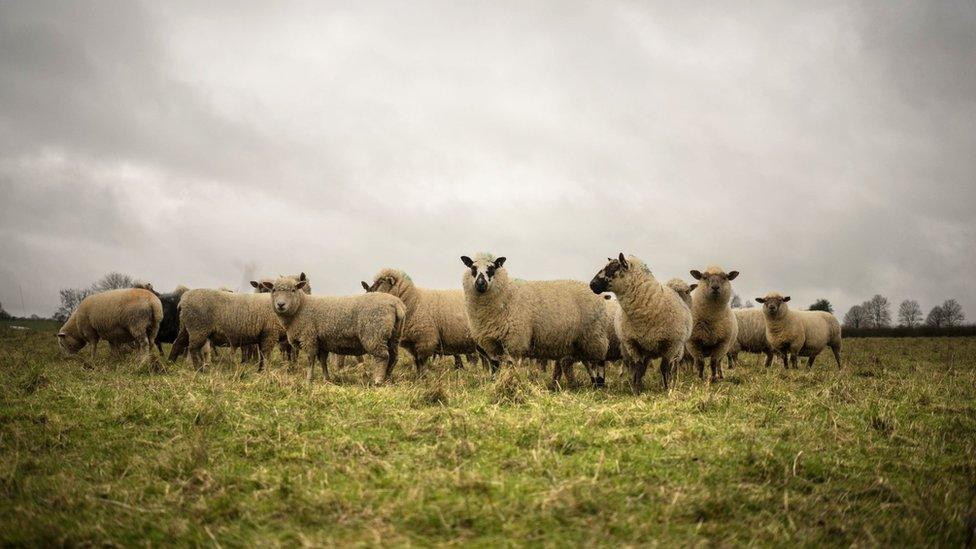What could Brexit mean for the UK's farmers?
- Published

If Brexit means farmers cannot get the foreign workers they rely on, or it hits efficiency, could more production switch abroad?
"Lets go and see the celery rig," says John Shropshire, external.
I'm intrigued by the Mad Max-style vehicle I can see across the green fields. Green, that is, with celery. The smell of the stuff fills the air, crunches under foot, fills the view up to the horizon, from an ever-so-pastel, whiter shade of green to a green so deep it is almost black.
But I'll pause and do some explaining before we get to that celery rig.
This farm is in the Fens, one of the areas with one of the highest Leave votes in the country, though it's also not far from Cambridge, one of the highest Remain vote areas.
Mr Shropshire has a business to run, but he's spending too much time these days, he tells, me, trying to persuade people what Mrs May mustn't allow Brexit to mean.
His company is huge: G's Fresh, external has a turnover of £420m a year, employing 6,000 people worldwide. It owns farms growing lettuce in Spain, spring onions in Senegal, beetroot in the US and, here and in Poland, celery.
He employs 2,500 people from Eastern and Central Europe in the high season, and he doesn't think Brexit will change either his need, or the actual supply.

"Nobody wants the seasonal jobs - maybe they want the permanent jobs. Let's face it, it is higher status in Britain to be on the dole than to be a cleaner.
"It's a nice evening in these fields at the moment, but it can be raining, it can be very hot and after a day on the celery rig you don't need to work out in the gym. Five per cent unemployment is incredibly low. The reason we've got immigration is that we've created too many jobs."
He says that's not going to change: the government will find a solution.
"We've had access since long before we joined the EU to people from Eastern Europe. There was a seasonal agricultural workers scheme that was brought in in 1948. We need foreign workers to come."
He shows me where the workers live. "It's not the Ritz," he says cheerfully.
Stefania is sitting by a small table, knees drawn up to her chin, looking rather elfin in front of the cluttered dorm room, narrow but not that long, with six bunk beds, and pots and pans on the shelves.
She says the work is not too hard and her English is getting better. But she's sad about the vote.
"Not so good, because it's not good for Romanian people. I think we will have to go home."
Evelina from Bulgaria thinks there'll be another referendum: "I hope they will make a list of those who want a second vote."
Agnieszka from Poland shakes her head. "I honestly don't think so, but I hope things work out. It's not fair, we don't want to go out."
Angel from Bulgaria says: "The consequences will be terrible, very big. I don't want to say economic catastrophe, but disaster anyway. People wanted immigrants out of the country, not the country out of Europe. They didn't know what they were voting for."
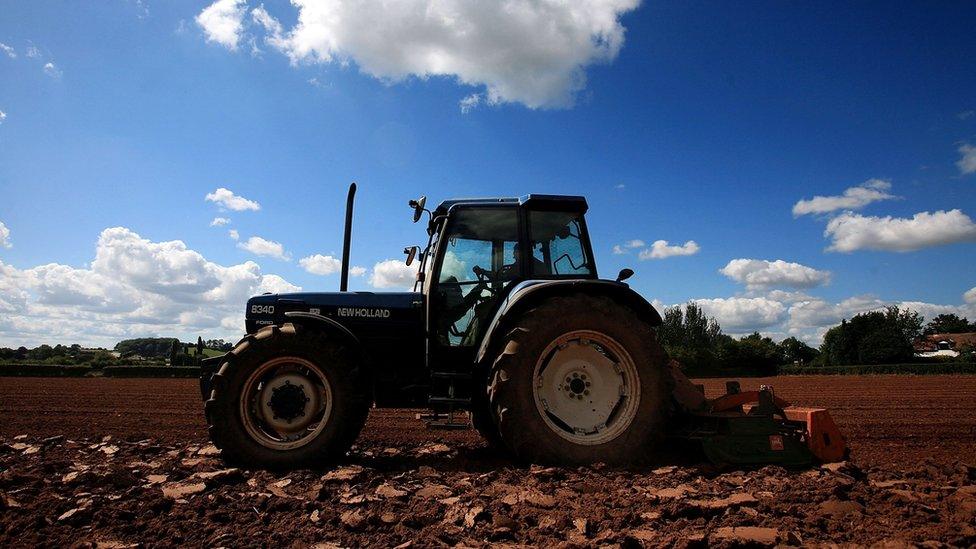
Did some farmers vote to leave the EU because they thought it might hurt rival businesses?
John Shropshire seems unconcerned by this aspect of Brexit.
He pays the National Living Wage, but says British people shouldn't want this sort of work. Mrs May has promised them good jobs, and that is what they should get, he says. Productivity is the real problem now.
And he's heard all the complaints before. So has his son, who runs the lettuce business in Murcia in Spain. His kids got into the local school, and Spanish children didn't. The Spanish didn't like it much.
So that's not what he's worried about. Nor does he mind if farm subsidies go. He tells me some farmers voted to leave because they thought weaker rivals would go under without the handouts. He can see that might be good for business. So that's not his worry either.
His concern is the single market. He had farms in Spain before it was introduced.
"Before, getting lorries and machinery back and forth between here and there was a total nightmare. Stacks of paperwork.
"In 1992 we embraced the single market - we had a proper bonfire of regulations. We really need access to the single market. If we lose that efficiency we are going to hammer the economy.
"We potentially could lose a lot of efficiency which could cost the consumer very dearly."
Senegal is not in the single market, I point out. "Yes," he says, "but it does have a deal with the EU."
So, let's go and see the celery rig.
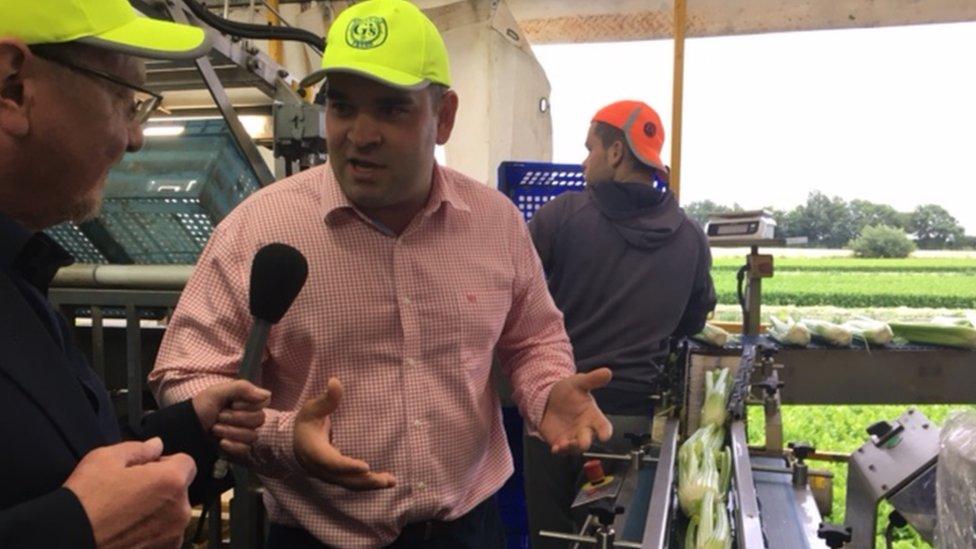
It's a big, blocky vehicle, moving so slowly an energetic snail could keep up, creeping forward on tank-like caterpillar tracks.
To see what's going on underneath its metal sides, I crouch down amid the celery stalks. I catch glimpses of wellington boots, hands reaching down to grab bushy plants, and the flash of a old-fashioned butcher's knife reducing them to a uniform size.
I get a better view clambering up the iron stairway to the second floor of this brute of a vehicle.
The 10 people below, having slashed the celery, put it on a conveyor belt which sucks it upstairs, and zips the trimmed veg along, thrusting it into a plastic bag, and then shunting it on so another group of men and women can quickly pack it into cardboard boxes.
While my imagination has Mad Max riding this thing over dunes of vegetable matter, it is a rather efficient mobile factory.
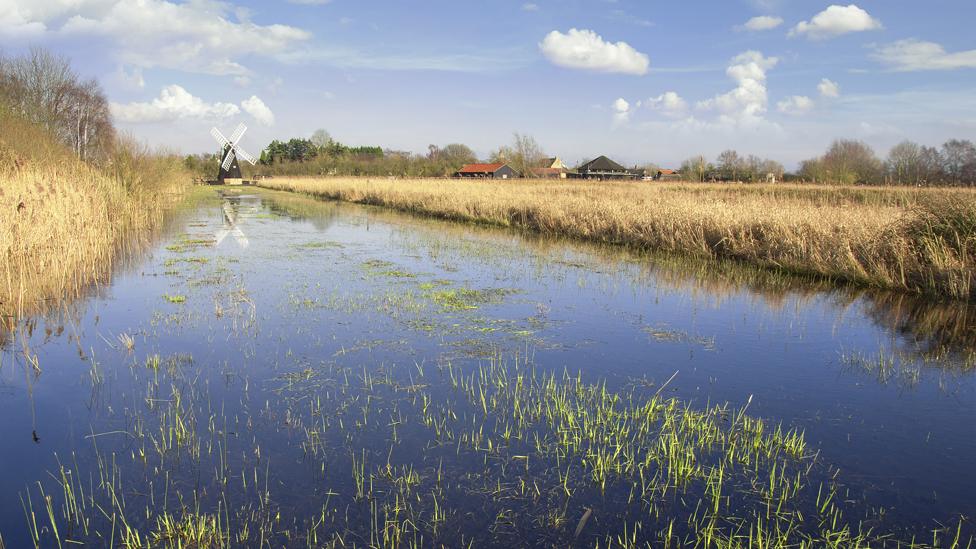
John Shropshire insists he will stay in the Fens, but his European operations may expand
John says he'll be OK. "Business will be all right." That's not his worry. If the consumer wants celery, they will pay what he will charge. But it could be higher.
And while Britain is coming out of the European Union, he could always move there.
"We're a European business, so I think it is a shame we're coming out of Europe. But we are always optimistic. We'll find a way of producing it with the greatest efficiency.
"We will certainly stay here in the Fens. There is a market for food in this country."
But the farm run by his 23-year-old son Henry in Poland could expand.
"Originally when we went in, it was to grow crops to supply people in that part of Europe in the summer, the market we'd built up, supplying from Spain in the winter.
"Now if there were controls on labour that made it difficult, or anything that made it too difficult, one option would be to take these machines, the celery rigs all around us, to Poland and grow the product there."
If his workers have to head home, some of his business might join them.
- Published4 July 2016
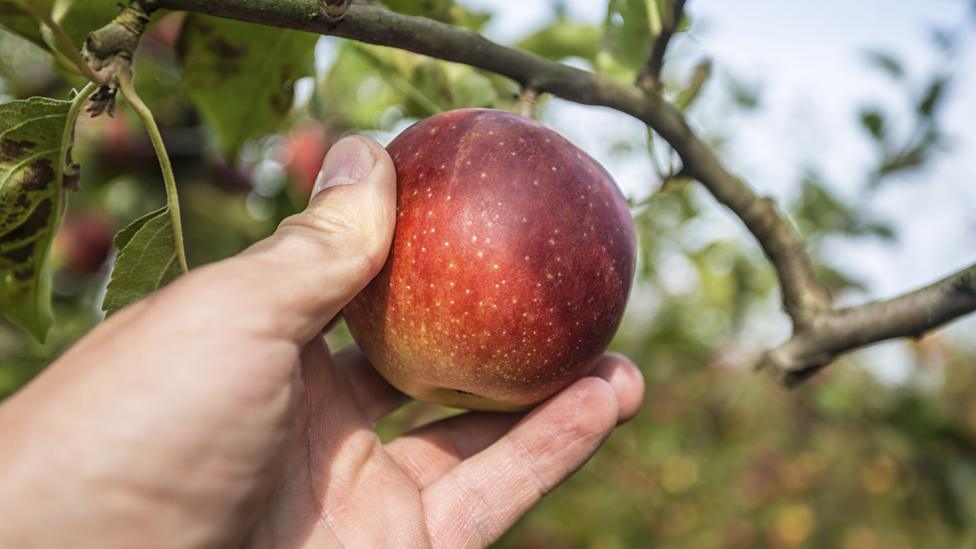
- Published18 July 2016
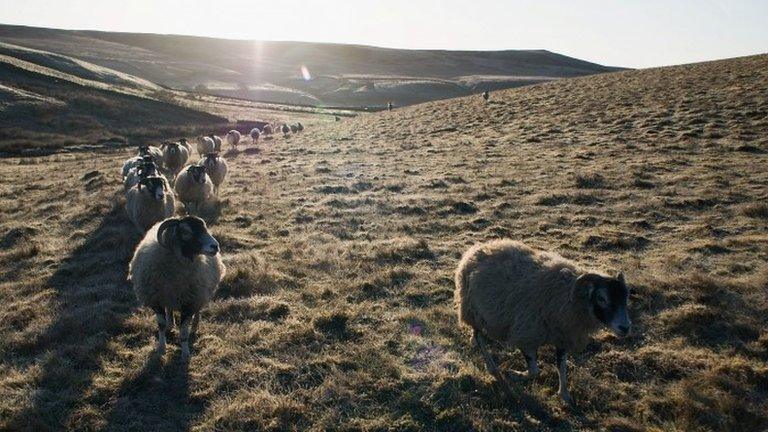
- Published15 July 2016
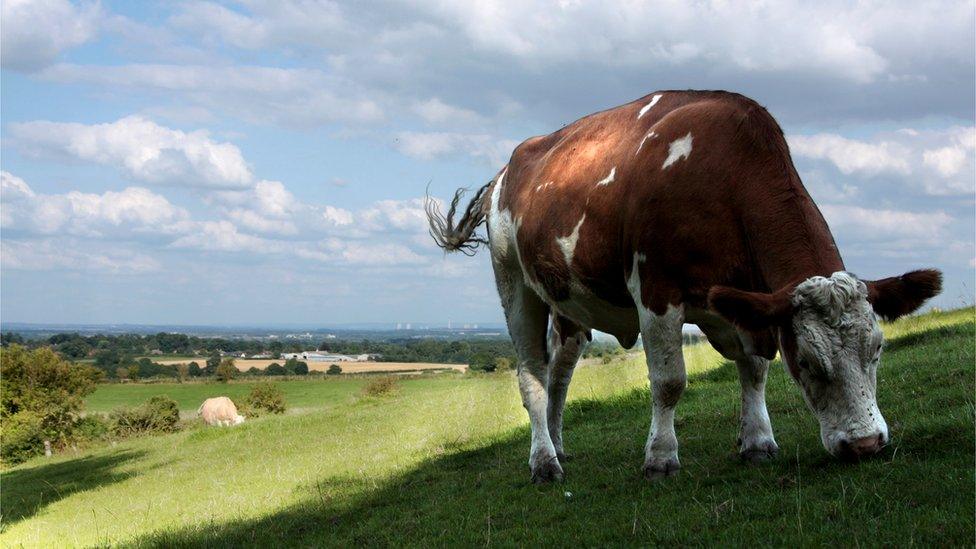
- Published22 June 2016
- Published19 June 2016
